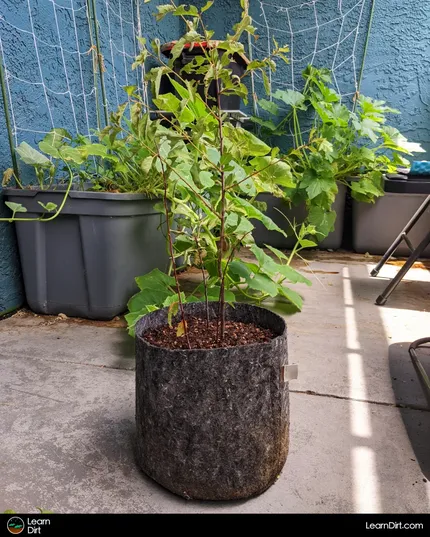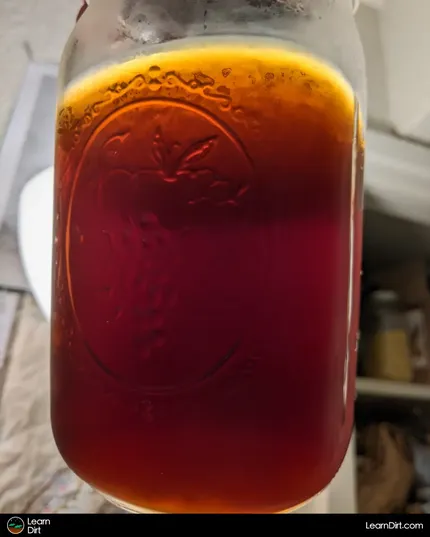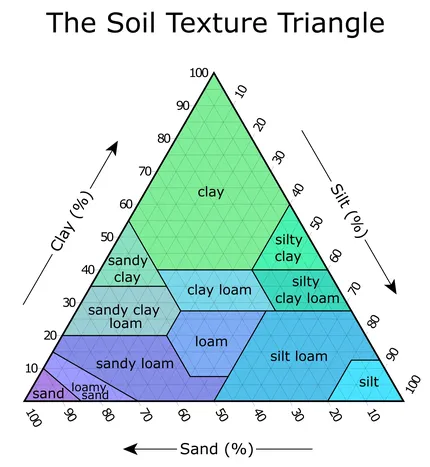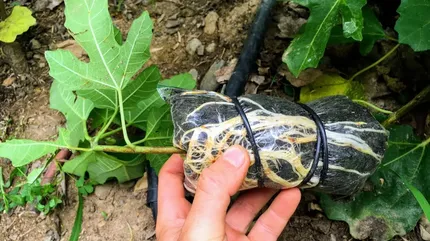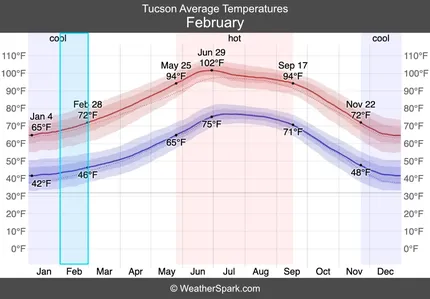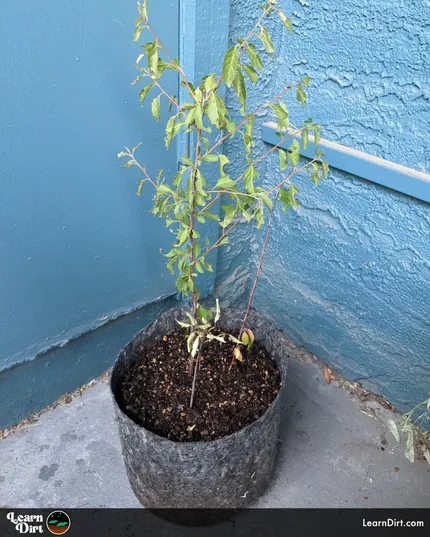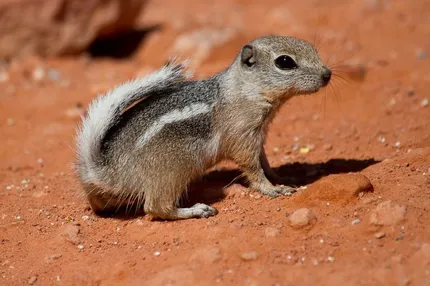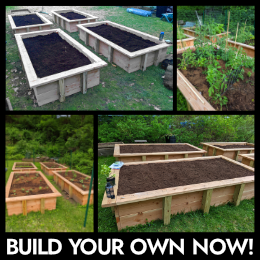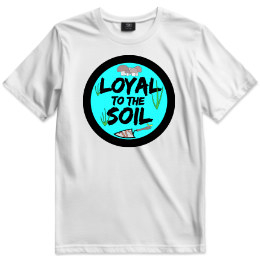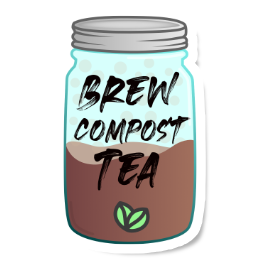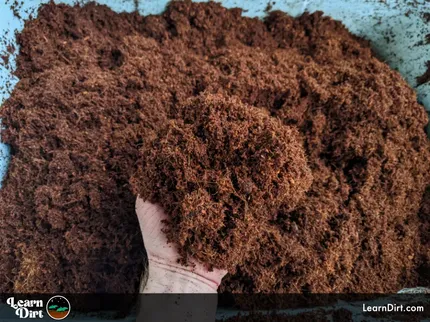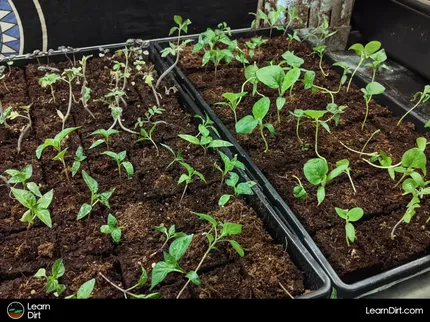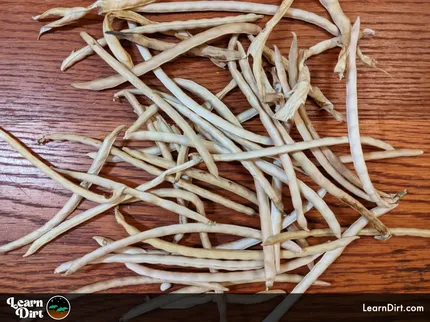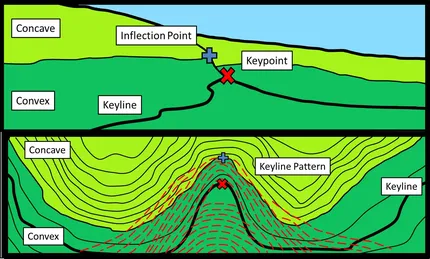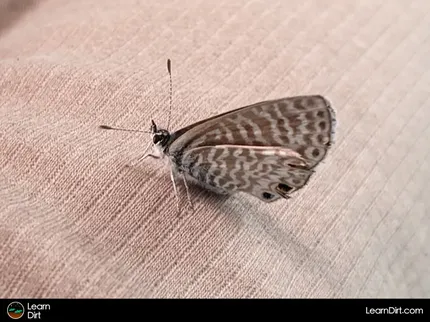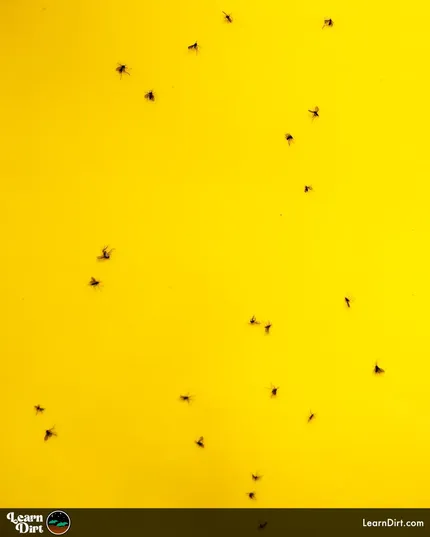Arizona is a challenging place to compost because it's so dry. That said, there are enormous benefits to composting in this environment as well.
We'll look at the pros, as well as how to handle the cons here to your compost can thrive.
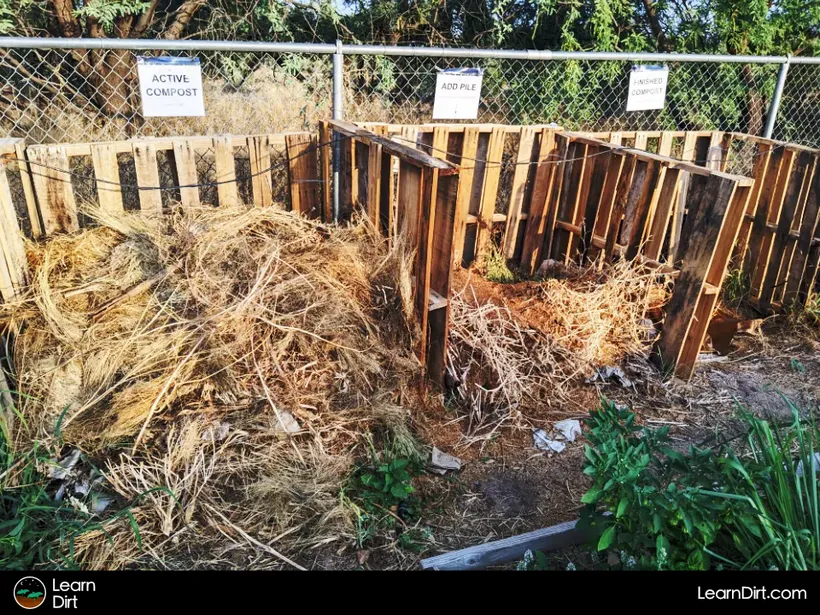
Arizona Compost Tips
Enclose Compost for Moisture Retention
The more you can enclose your compost, the less often you'll need to water it.
Disclaimer: This post may contain affiliate links. Refer to the privacy policy for more information.
Just remember that compost does need oxygen, so the more you enclose it the more often you'll want to turn it to aerate.
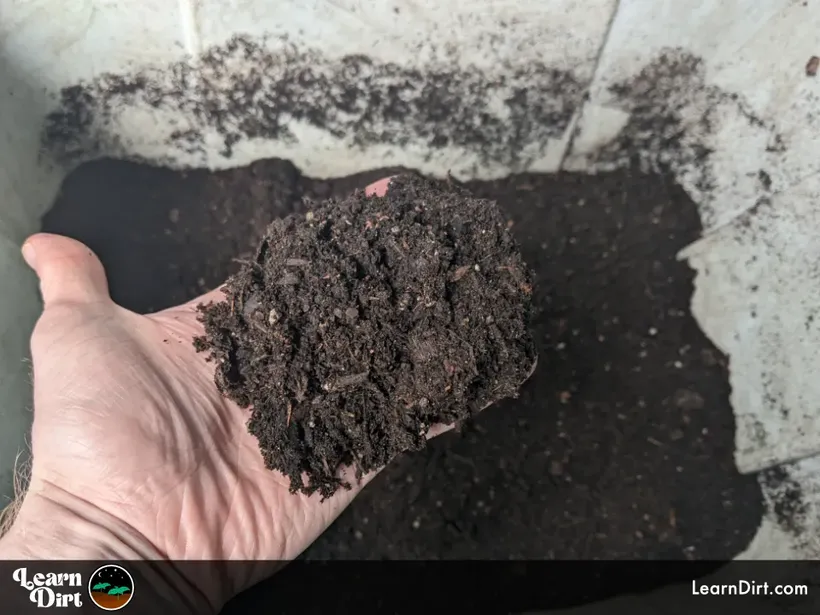
Remember to drill holes in the bottom of totes for drainage, and also consider drilling lots of side holes to add some airflow.
I usually leave the lid ajar on compost totes for more air exchange, and so that black soldier flies can get in and help speed things up.
Irrigate Your Compost Pile
Just be sure that compost is slightly drier than soil to prevent excessive microbial activity from getting out of hand.
Balance C:N Ratio
In wet climates, too much moist nitrogenous 'green' material can lead to a slimy pile that goes anaerobic. In these climates, gardeners need to lean on more carbonaceous 'browns' to keep compost dry enough and slow down decomposition
Conversely, dry climates like Arizona cause compost piles to dry out and dessicate much faster than they would in other climates.
Join The Grower's Community
Looking for a place to meet growers,
ask questions, share knowledge, be heard,
and feel like you belong? 🌱
Check It Out!
Because of this, Arizona gardeners should lean on more wet nitrogenous food scraps and coffee grounds to keep the pile moist and decomposition happening.
Check out our guide on controlling compost bioactivity to learn more about how your C:N ratio affects the biology of your compost.
Turn Compost Regularly
While frequent turning can help dry out and aerate wet compost piles in rainy climates, frequent turning also has benefits here in the desert.
turning compost in such an arid environment can help you to assess the moisture level and bioactivity, and give you a chance to add more water if parts of your compost are too dry. It's a chance to inspect the progress and make needed adjustments.
With totes and small compost systems, I find these Lotech cranks (locally made in Tucson) work wonders for turning and aerating compost.
Remember to keep your compost moist enough that you could wring a drop or two of water out of it when squeezed. If you let it totally dessicate, the compost process will slow to barely a crawl.
A moisture meter reading of about 5 out of 10 is a great target to shoot for, a little more dry than you'd keep your garden or planters.
That's all for now, thanks for reading!
If you have any questions, comments, or would like to connect with fellow gardeners, head on over to the forum and post there.
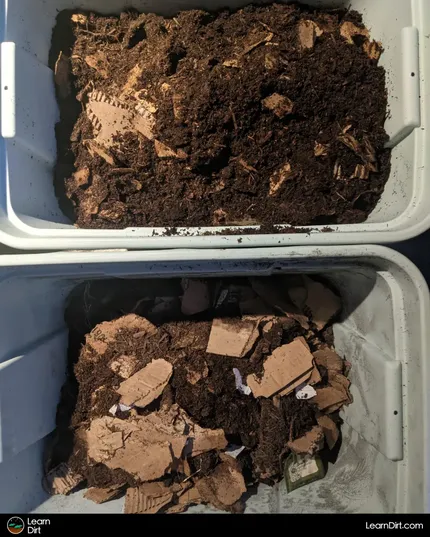
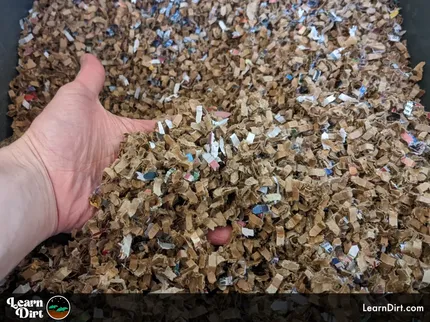
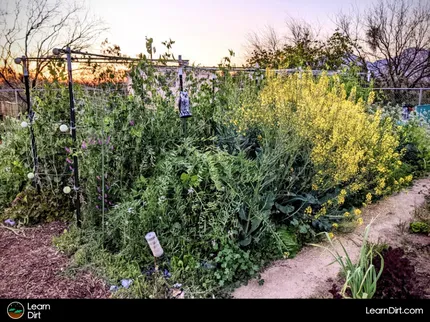


![Don't Till Away Your Carbon [Neon]](/media/product_images/dont-till-away-your-carbon-[neon]_sticker_260x260.png)


